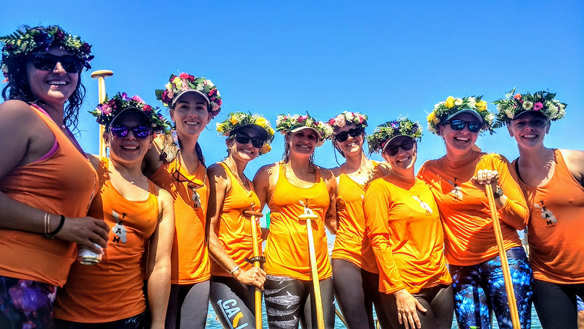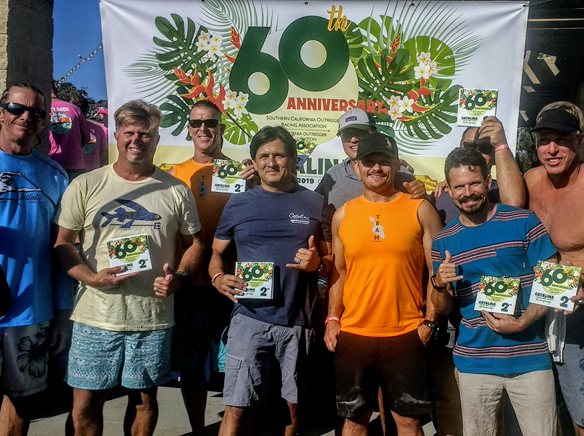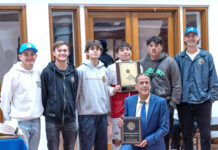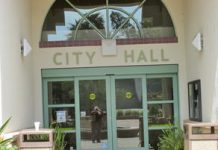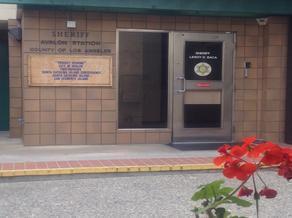The US Outrigger Championship this past weekend brought teams from all over the world to race in the grand finale’ of the Outrigger season.
Women and coed teams started the race Saturday from Newport Beach to Avalon, 26 miles across the channel.
Competitors race in different divisions based on many factors; canoe weight, male, female or coed teams and then further divided into age categories.
In the “Spec” boat division Team Catalina women’s team kept a good pace throughout the race, even edging into and holding first for a while. Washington State eventually pulled ahead, over the course of the next several hours continuously holding first. Washington State crossed the finish line just eight minutes before Team Catalina. Golden State (Northern California) team followed in third, another eight minutes behind Team Catalina.
In traditional Catalina fashion the trophy was a beautiful piece of tile.
The following morning (Sunday) the men’s teams prepared for the 30-mile race back, past the Newport breakwaters into Newport Harbor.
The Catalina men’s team met on South Beach in Avalon to focus on team spirit as words of encouragement were exchanged. Team member, Paul DeMyer was running a fever and thankfully Willie Richerson was available and willing to step in as a last-minute replacement.
At approximately 9:30 a.m. all competing men’s teams paddled out to the start line just outside of Lover’s Cove.
At 9:54 a.m., minutes before the designated start time a horn set the outriggers teams in motion marking the beginning of the race. An actual false start. Six minutes before scheduled a ferry horn blared, launching paddlers across an invisible line and the race was on.
Within five minutes of the start there was a wide separation of teams as the strongest were already separated from the pack.
The nine-man teams began the change outs of paddlers thirty minutes into the race. The exchange of three members at a time, every 20 minutes. Allowing paddlers to recuperate as needed. Some were taken out of the canoe more often than others. This depending on the strength or weakness of each paddler determined by the team’s coach.
While on the chase boat resting paddlers discussed strategy and technique.
One of the greatest concerns during a race is the possibility of a huli, this is the capsizing of the Outrigger Canoe, usually due to sea conditions. Throughout the race on Sunday, sloppy seas and wakes caused by chase boats negatively impacted the performance of several teams. A larger than normal number of canoes rocked by the wake and swell were unbalanced and overturned, causing a huli (in outrigger’s terms). When an Outrigger canoe overturns everything is in the water, paddlers and paddles. The team must act quickly to right the situation and continue the race, losing valuable time in the process.
Not only are surface conditions a factor for paddlers throughout the race but the current plays a role as well.
As Team Catalina neared Newport, chase boat captain Arthur Grant used his navigation skills to support steersman Greg Wright, enabling Greg to use the current as an advantage instead of a drawback. Greg held his position as steersman over the entire 30-mile race.
Catalina finished strong remaining consistent and upright for the duration of the race, taking home a second-place trophy. Washington Canoe Club again edging Team Catalina out of first place.
What a finish to a tremendous season. With each race team Catalina became stronger as a competitive force. Individual’s effort, consistency and love of paddling united us not only as a team but as a community.
